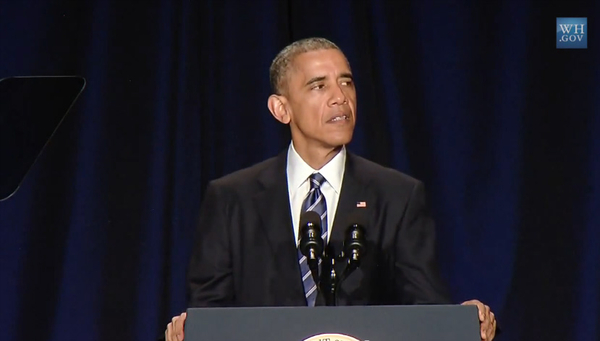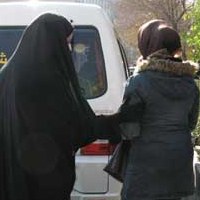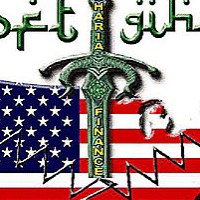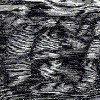![]()
by Douglas Murray
Originally published by the Gatestone Institute under the title “Obama Makes Up Facts — Again.” Republished with permission.

President Barack Obama, speaking at the National Prayer Breakfast on February 5, 2015. (Image source: White House video screenshot)
Barack Obama is the President of the United States, but to judge from his speech at the National Prayer Breakfast last Thursday morning, one might get the impression that he thinks himself far more than that.
He and his speechwriters presumably realised with the news in America, as in the rest of the world, dominated day in and day out with atrocious news stories from Muslim communities in the Middle East, the President would probably have to make a reference to Islamic violence.
President Obama described ISIS as “a brutal, vicious death cult that, in the name of religion, carries out unspeakable acts of barbarism.” That “religion.” rather than “Islam,” was a notable nicety. Elsewhere, when he got into specifics, he indulged in a line of spread-the-blame-around-a-bit. He went on to say:
“We see sectarian war in Syria, the murder of Muslims and Christians in Nigeria, religious war in the Central African Republic, a rising tide of anti-Semitism and hate crimes in Europe, so often perpetrated in the name of religion.”
The Nigeria point is a neat one, suggesting that the religious conflict there is very much a “six of one and half a dozen of the other” problem, rather than a problem of Muslims slaughtering Christians. And who is to cast blame if both sides are doing it? But the point on rising anti-Semitism in Europe is avoidance and avoidance-blaming at its very best. They are not, it is important to state, just “often perpetrated in the name of religion.” Because although people may be shocked to hear it, Europe is not going through a “rising tide of anti-Semitism and hate crime” because we have all become a bit too Christian, Jewish or secular in recent years . It has happened because post-war immigration into Europe has brought very large Muslim communities amongst whom anti-Semitism is, in the words of British Muslim journalist Mehdi Hasan, “routine and commonplace… our dirty little secret.” It is from these communities that the upsurge in anti-Semitic hate-crimes — which were at an all-time high in the UK last year — has come.
As eminent historians are so famous for doing, President Obama also chose to lecture on religious history, and do so as glibly and inaccurately as possible. As many another aspirant historian does, President Obama went in by way of the Crusades. He hadn’t actually singled out Islamic extremism as a particular problem at the moment — because he will not even name it — but he did decide to say that everybody else could be just as guilty as the religion that must not be named:
“Lest we get on our high horse and think this is unique to some other place, remember that during the Crusades and the Inquisition, people committed terrible deeds in the name of Christ. In our home country, slavery and Jim Crow all too often was justified in the name of Christ.”
Since it was President Obama who brought these up, you might have thought he would have had the information to know a little about the background. In particular that the Crusades — gruesome as they were — were not some early outbreak of “Islamophobia.” They were an effort, by Christian nations in Europe, to defend Christians in the Middle East who were being slaughtered by Muslim tribes, and specifically to take back the city of Jerusalem from the Muslim armies who had conquered it. The question of whom Jerusalem ought to have belonged to is a long and interesting one, but unless you think that Muslim armies should have been allowed to conquer Jerusalem and wipe out Christians across the Middle East a millennium ago, it is hard to see why the Crusades should be regarded as a particular sin of Christians. And Christian Americans in particular might rightly wonder what guilt they are meant to feel for a religious war that took place centuries before America as a country even existed.
As for slavery, do we really need to keep going around this one? Because while it is true that you can find religious people who endorsed slavery — in the Bible and elsewhere — any historian would find it hard to deny that the movement to abolish slavery was also led by Christians. Slavery is still practiced by Muslims in Mauritania and, as recently seen, by Boko Haram. It is a very strange interpretation of history that is willing to put the blame for slavery (a worldwide practice at most times in history) on Christians, but to ignore William Wilberforce, Abraham Lincoln (a Republican) and other Christians who led the world in fighting to abolish it.
Only someone ignorant would claim that Islam is the only religion in whose name bad things have been done. But only a historian with an agenda would try to kick over the actual complexities to invent his own set of facts. In Britain, this effort to manipulate the facts in order to come to a pre-ordained conclusion is known as the “Whig interpretation of history.” Perhaps Americans might rename it the “Obama interpretation of history.”
But in all of that — these roles that show President Obama seems to think the office of President of the United States may not be quite good enough for him — there was one further role that Obama also sought. That was the role of moralizer-in-chief. Because it remains fairly shocking to some of us that President Obama — not least in a speech in which he talked about the importance of upholding “the distinction between our faiths and our government” — should endeavor not only to lead the American people, but to tell them how to think and what to think.
Never mind that in his present-day analysis in the Prayer Breakfast Speech, the President was unable even to name what it was he was trying to analyse. And never mind that the historical references in the speech were based on misreporting history. Most shocking is what the President obviously intended his audience to take away and learn from the speech. That lesson can be boiled down to: “Who are we to judge?” The answer, I trust, is obvious to readers, even if it is not obvious to President Obama. We are able to judge ISIS because there is every difference in the world between the United States and ISIS. The American people should of course be aware — as everybody should be — that nobody has a monopoly on virtue, just as nobody has a monopoly on vice. But if you look at the current global playing field, we do have the right to judge ISIS because we are not like them.
What President Obama gave last week was not just a wrong analysis of the past and present. It was a justification for the argument that America does not have the legitimacy for doing anything meaningful against the great evil of our time, because we have “all been evil.” It is probably not ahistorical to point out that the great men who have inhabited the President’s job would, to a man, have been ashamed of him.
Douglas Murray, a senior fellow at the Gatestone Institute, is also director of the Centre for Social Cohesion.



 RSS
RSS










Latest Comments
Hello Mike, Thank you for your positive feedback to the article. I felt there wasn’t too much critical analysis of ...
Thanks for this considered and well constructed article. A follow up article on the manner in which the editorial contro...
THE CLUELESSNESS OF CLAIMING THAT OBAMA'S MIDDLE EAST POLICIES WERE A FAILURE CANNOT BE FURTHER FROM THE TRUTH, WHAT THE...
As long as Obama is the president of the usa do not trust the us government......
Thank you for an good read....